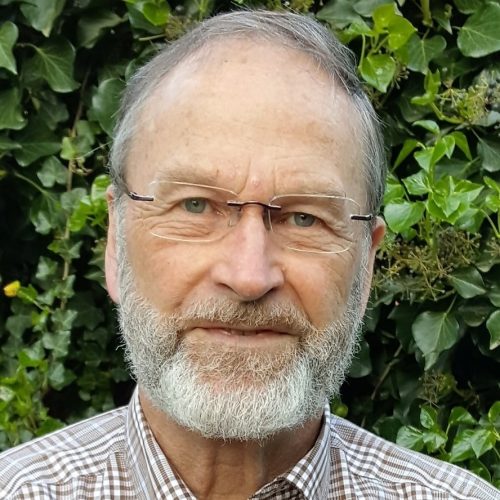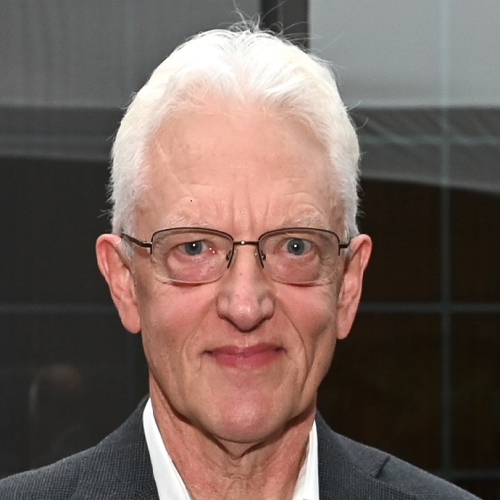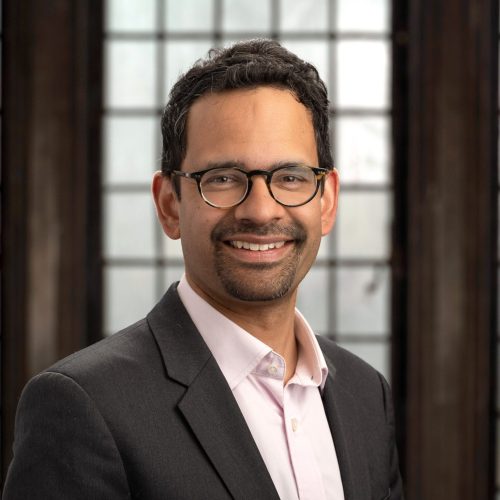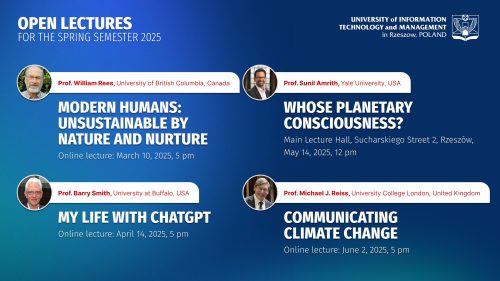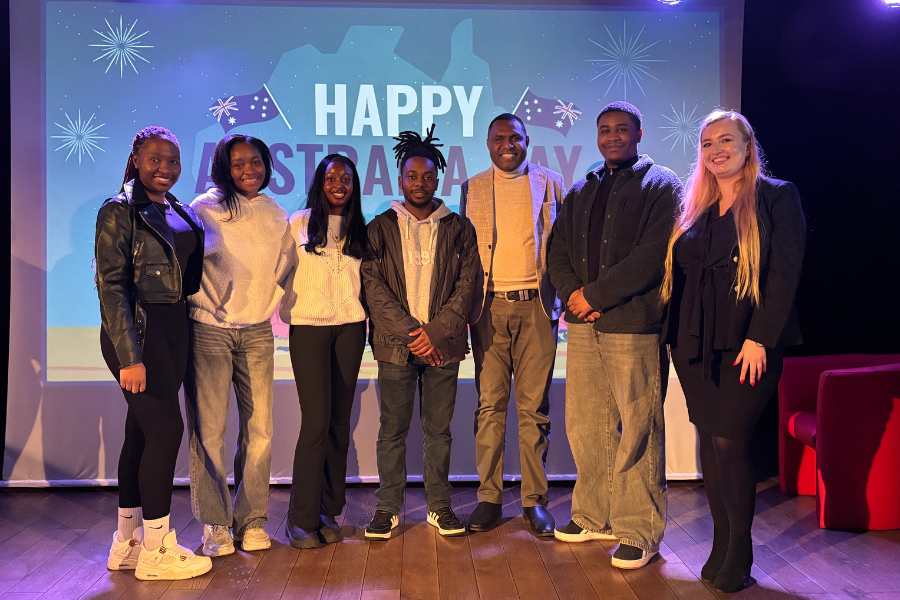The University of Information Technology and Management in Rzeszów invites everyone to a new series of open lectures. The sessions will be conducted by renowned professors from Canada, the USA and the United Kingdom. The invited speakers will explore topics related to climate change, artificial intelligence and planetary consciousness.
10 March 2025 (Monday), 5:00 PM – online meeting
“Modern Humans: Unsustainable by Nature and Nurture” – Prof. William Rees, University of British Columbia’s School of Community and Regional Planning, Canada
Modern techno-industrial society consumes renewable resources faster than ecosystems can regenerate and produces (often toxic) waste in quantities that exceed nature’s assimilative capacity. Overconsumption is the ultimate state — it destroys the biophysical foundations of human existence and leads humanity toward collapse. Governments, international institutions and most ordinary people remain largely blind to this problem in their behaviour. The situation of modern humanity has deep roots both in human nature and in contemporary social constructs. In short, the unsustainability of global society is a natural phenomenon reinforced by flawed cultural narratives.
Prof. William Rees is an ecologist, ecological economist, emeritus professor and former director of the University of British Columbia’s School of Community and Regional Planning. His research focuses on global ecological trends, particularly on cities as vulnerable components of the human ecosystem, and on psycho-cognitive barriers to social change. He is the originator and co-developer of the Ecological Footprint Analysis (EFA), and the author of hundreds of peer-reviewed and popular articles on these topics.
Prof. Rees is also the founder and former president of the Canadian Society for Ecological Economics, founder and director of the One Earth Living Initiative, and a fellow of the Post Carbon Institute. He has been awarded the Trudeau Foundation Fellowship, the international Boulding Prize in Ecological Economics, and the Blue Planet Prize (2012) (jointly with Dr Mathis Wackernagel). In 2015, he received the Herman Daly Award from the U.S. Society for Ecological Economics, and in 2016, the Dean’s Medal of the Faculty of Applied Science at UBC. Prof. Rees was a full member of the Club of Rome from 2014 to 2019.
14 April 2025 (Monday), 5:00 PM – online meeting
“My Life with ChatGPT” – Prof. Barry Smith, University at Buffalo, USA
The lecture will present both the positive and negative aspects of Large Language Models (LLMs) such as ChatGPT. The claim that LLMs will serve as a springboard to Artificial General Intelligence (AGI) will be critically examined.
Prof. Barry Smith is one of the most frequently cited contemporary philosophers. Author of around 600 academic papers and 21 books, he has made significant contributions to the foundations of ontology and data science — particularly in the field of biomedicine. His latest co-authored book, “Why Machines Will Never Rule the World,” challenges the current hype surrounding so-called “artificial intelligence.”
Prof. Smith developed the international ontology standard ISO/IEC 21838, the first example of philosophy subjected to ISO standardisation. This standard underpins about 700 ontology initiatives worldwide and is required by several U.S. government agencies.
14 May 2025 (Wednesday), 12:00 PM – Prof. Jerzy Chłopecki Auditorium, UITM
“Whose Planetary Consciousness?” – Prof. Sunil Amrith, Yale University, USA
This lecture traces the origins of one strand of “planetary consciousness” in the early 20th century and asks to what extent this way of seeing life on Earth remains marked by its imperial roots. Drawing on Indian debates from the past quarter century, the speaker poses the question: does planetary consciousness stand in the way of earthly justice?
Sunil Amrith is the Director of the Whitney and Betty MacMillan Center for International and Area Studies at Yale, Renu and Anand Dhawan Professor of History at Yale University, and a professor at the Yale School of the Environment. He chairs the South Asian Studies Council at the MacMillan Center and is the author of five books, including The Burning Earth (W.W. Norton and Allen Lane, 2024), translated into nine languages and named “Book of the Year” by The New Yorker and The New Statesman in 2024. He is a MacArthur Fellow (2017), winner of the Heineken Prize for History (2022), and recipient of the Fukuoka Academic Prize (2024).
2 June 2025 (Monday), 5:00 PM – online meeting
“Communicating Climate Change” – Prof. Michael J. Reiss, University College London’s Faculty of Education and Society, UK
For some, climate change represents an existential threat; for others, it is exaggerated or even a hoax. How should we deal with this wide diversity of views? Should schools teach climate change as a controversial issue? Should climate-change deniers be allowed or banned from posting on social media? And how do controversies about climate change relate to those about vaccination and creationism? This lecture will address these questions.
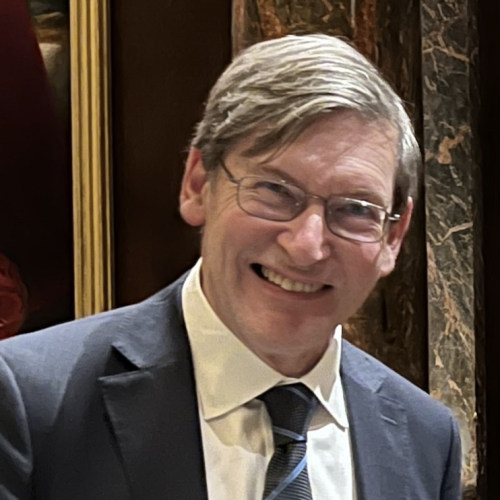
We warmly invite all interested students and alumni to take part in these events.
